This year at the National Retail Federation’s (NRF) Big Show we will highlight how Power Platform can help unlock productivity and improve customer experiences in your retail shopping experiences. Store associates can face many challenges, including dealing with backorders and stockouts on items. Often, this is caused by data being scattered across multiple enterprise systems and data sources. It is nearly impossible to identify and mitigate risks with these challenges. Using Microsoft Dataverse and Power Platform to unify data, you can equip store associates with solutions that enable them to be knowledgeable in their customer conversations and offer options to improve the customer experience.
Makers can build solutions using a combination of Power Apps, Power BI, Power Automate, Copilot, and Microsoft Teams seamlessly working together to provide an optimized store experience. Using Power Apps, a maker can build solutions that include visualizations and insights aligning with the store inventory. Alerts can be generated using Power Automate to notify the associates of relevant out-of-stock items and supply chain delays. Using Copilot for Microsoft 365 using plugins or a custom copilot built with Microsoft Copilot Studio, store associates can receive recommended discussion points that they can use to interact with the customer about their order, delays in orders, and possible solutions like home delivery or pick up from another location. Copilot can provide this information because it has access to the unified product and inventory data ingested into Dataverse. Store associates can start a Microsoft Teams chat with a peer to check the availability in an alternate store including request to hold the product for the customer to pick up.
Activate data from enterprise systems
This year’s NRF theme is “Make it Matter,” and nothing matters more than unlocking the value of the data you already have. To support the frontline retail staff with improved app experiences, you need to be able to supply the data from the backend systems. Power Platform has a rich ecosystem of over a thousand connectors, allowing you to access data from its current location. In scenarios where you only need a simplified subset of data or wish to unify data from multiple data sources, you can ingest the data into Dataverse using Dataflows. For example, you might need to bring a subset of inventory and purchase order data from SAP instead of navigating SAP’s data store. This simplification can make it easier for makers to build apps navigating the transformed data. Many organizations are taking advantage of Microsoft Fabric OneLake, to help eliminate data silos. Dataverse can create shortcuts to OneLake, which enables you to work with data without making multiple copies. Makers can then build apps and automations to orchestrate business processes and react to insights found in Fabric.
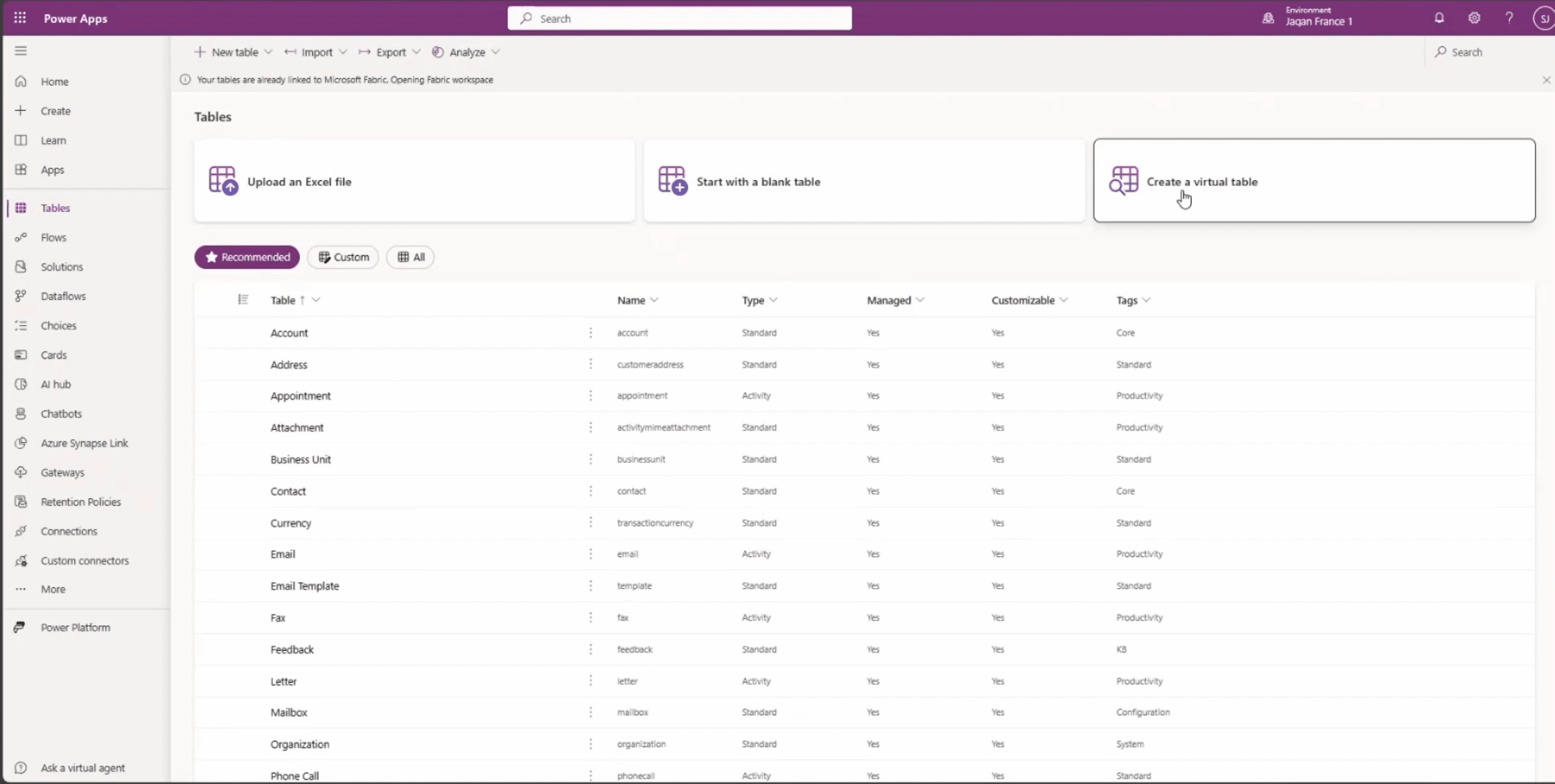 Activate enterprise data by easily connecting your Microsoft Fabric workspace to a Power Platform environment
Activate enterprise data by easily connecting your Microsoft Fabric workspace to a Power Platform environment
Using Dataflows, data can be transformed and ingested into Microsoft Dataverse. Today, more than 80 different data sources are supported, including from on-premises by using the data gateway. Data transformation in Dataflows is accomplished using Power Query. Review What are dataflows to learn more about how they can be used to unify your data. Mapping complex data, such as purchase order data from SAP to Dataverse tables, can be challenging and time-consuming. You may not know what the best mappings to use are. To simplify this, we will soon add an AI-Assisted mapping feature to Dataflows to improve productivity by increasing mapping speed and confidence when bringing data to Dataverse tables. This feature simplifies the mapping experience by recommending column mappings and suggesting actions to achieve the best mapping. Makers can also generate a Dataverse table using the Copilot feature in Power Apps by telling the AI assistant using natural language what type of information they want to collect. Read Build apps through conversation or Create a canvas app with data from an Excel file to learn more about how Copilot in Power Apps makes it easier to get started with Dataverse.
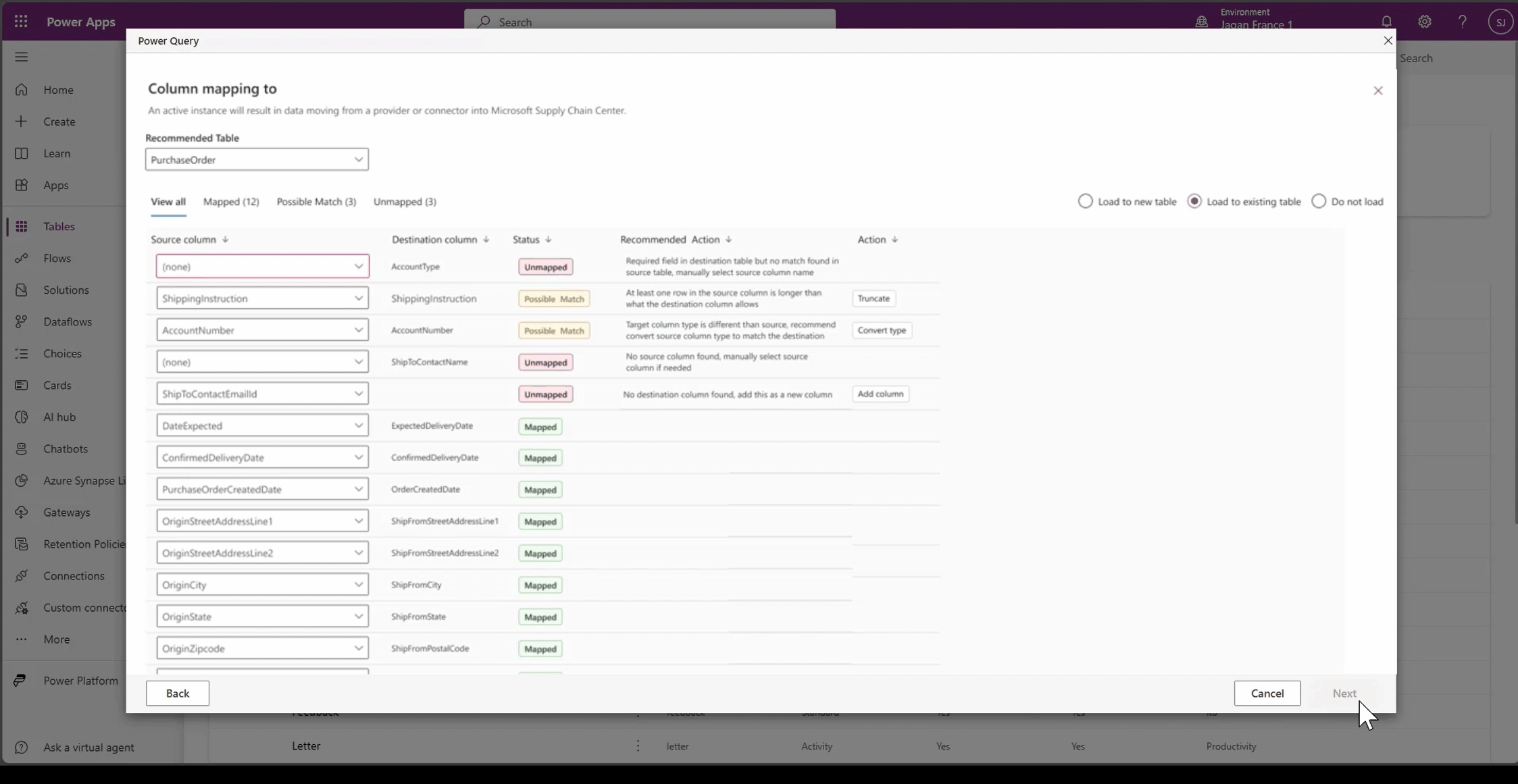 AI assisted mapping simplifies mapping data between different schemas
AI assisted mapping simplifies mapping data between different schemas
Ingesting data into Microsoft Dataverse opens a broad range of opportunities to use this data to build solutions. Makers can build Copilot-enabled Power Apps that allow natural language queries on the data. Power Pages can be used to build customer-facing portals that provide secure self-service lookup of data by customers. Complex business processes involving the data can be orchestrated across enterprise applications with Power Automate. Using Microsoft Copilot Studio, makers can build custom copilots that provide customers an engaging interactive experience.
Catalog accelerates reuse of components
Organizations can take advantage of the catalog in Power Platform to share reusable components and templates to accelerate time to value by providing the ability to reuse existing templates and improve efficiency for building customized solutions for many customers. Partners like Accenture can now create reusable assets to accelerate building their solutions for different customers. For example, a maker at Accenture can save their store inventory availability app (template) to a catalog in Power Platform to enable building different versions of the accelerator for other customers in the future, and the template provides a more useful starting point to begin from. Read Get Started with catalog in Power Platform to learn more.
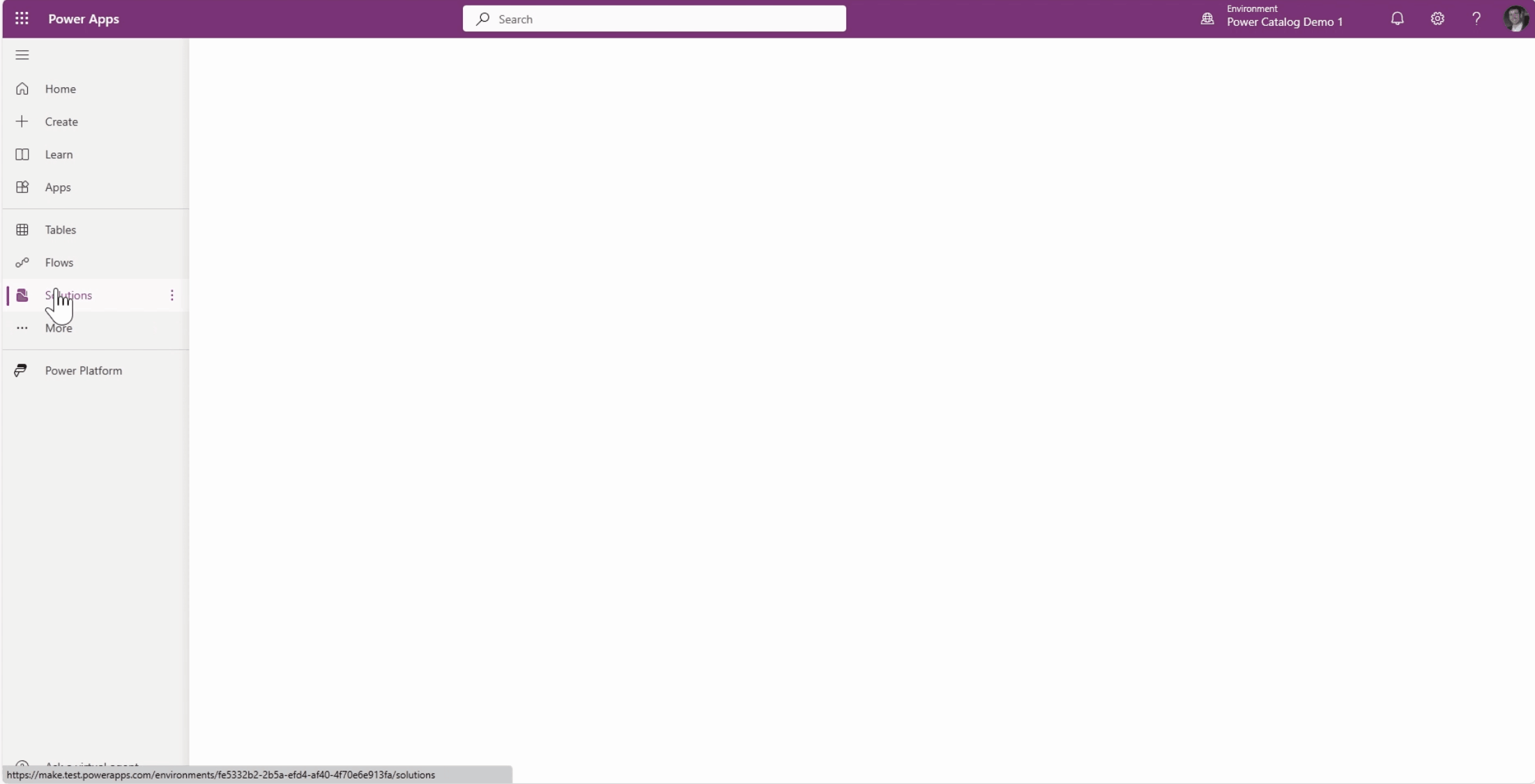 Reuse of templates via Catalog in Power Platform
Reuse of templates via Catalog in Power Platform
Microsoft Cloud for Retail team leverages Power Platform components to rapidly target and implement solutions that can make a difference in the store experience. One example is the generative AI powered Microsoft store operations application template; Retailers can leverage this template to equip store associates for task management and to serve customers, providing retail leaders access to advanced analytics. Using new generative AI capabilities, associates can easily get answers to questions on store operating procedures like how to handle refunds or set up product displays and ask questions about the product catalog to support shoppers, review HR policies and benefits, or complete surveys—all while attending to duties on the floor. on the floor.
Retail frontline workers finding information in the flow of work; Retail leaders can view FAQs and the quality of AI responses.
Connect with Microsoft at NRF
Stop by and talk to us about your unique challenges. Let’s discuss how you could use Power Platform to help you innovate. There are many ways you can connect with us in person at NRF. We look forward to seeing you!
- Visit our booth on level three at #4503. Conveniently located at the main entrance of the Exhibition Hall, immerse yourself in innovative demos and experiences, and meet and collaborate with Microsoft experts and our industry-leading partners on how you can leverage cutting-edge AI retail solutions.
- Join us for our welcome reception. Welcome Reception on Sunday, January 14, 2024: Celebrate with our featured retailers and partners with an opportunity to connect over food, drinks, and networking, register now.
- Schedule a one-on-one meeting. Let your account representative know if you would like to schedule some time to meet with our product experts and Microsoft leadership, who are available to strategize and answer all your questions.
Learn more
- Read the blog from Martin Kostal to learn how Cloud for Retail can help improve Store operations experience: Microsoft Cloud for Retail
- Read the blog from Shelly Branston to learn how https://aka.ms/MCFR-Disclosure-Blog-2024
- Learn more about Microsoft Dataverse


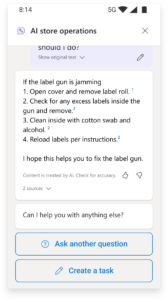
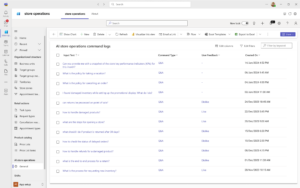
0 comments